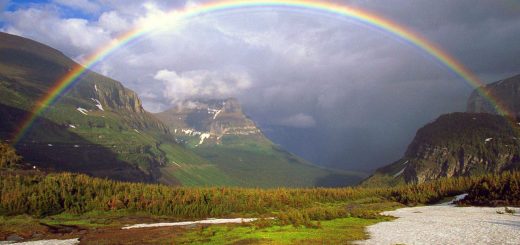What is the world waiting for?
When we think about the Easter events, there’s often a focus on the cross rather than the resurrection. There’s a focus on what Jesus did for us as individuals rather than the whole of creation. Jesus’ death on the cross is vitally important to reflect on, of course it is, but this should be balanced with reflection on the impact of the resurrection also.
What difference could this make?
When considering our future hope in Surprised by Hope, Tom Wright prefers to focus first on the renewal of creation before turning to the future hope of the individual –
the biblical vision of the future world – a vision of the present cosmos renewed from top to bottom by the God who is both creator and redeemer. Tom Wright, page 92
Many individuals place their trust in progress. Advances in science and technology will save the world. Politicians promise that if we vote for them, things will be better. This is based on a confidence that humans will continue to grow and develop and evolve – a vision of a coming Utopia that is all together possible. All it takes is education and hard work. ‘We’ll work things out – we always have.’ Onwards and upwards!
But where does the reality of evil fit into that vision? Just look around the world. Evil still exists. No matter how hard we try, evil is not being eradicated.
Maybe progress isn’t all it’s cracked up to be. ‘Don’t you believe in progress?’ ‘I don’t know. I look around me and ask is this really progress at all?’
The opposite worldview to this is that the world is a terrible, wicked place and the sooner we can move on to the next life, the better. There’s a sense that this world is an illusion and enlightenment is what will put us in touch with ultimate reality. The tough stuff in this life is simply a sign that we were made for an alternative reality. Physical, material existence counts for nothing. Only spiritual existence matters. Some Christians embrace this thinking and see our existence on earth as no more than passing through (which I was brought up on, but left me thinking ‘Why bother doing this part at all then? Why on earth did God create this world at all?) Christianity is often reduced to doing what you need to do to go to heaven when you die. That’s it. Which of course will lead to a disrespect and exploitation of the natural world, because why does it matter what we do with it?
The position that Tom Wright presents in his book lies between these two extremes – not as a compromise or a middle ground, but as a strong place of understanding that ‘what the creator God has done in Jesus Christ, and supremely in his resurrection, is what he intends to do for the whole world – meaning by ‘world’, the entire cosmos with all its history.’ (page 103). This is the belief held by the early followers of the Way and laid out clearly in Paul’s letters and the book of Revelation. It starts from the position that God created the world and it was good. God created human beings in His image to reflect His nature through their praise and their stewardship of His creation.
Evil exists. It exists primarily in rebellion against God and what God stands for. It exists when we turn away from God and think we know best and want to do life our own way. We end up worshipping other things and turning to other things for all the answers (and discovering that we have turned away from all that is life-giving).
And then comes redemption – God’s ultimate plan not to scrap everything and start again but to redeem the whole of creation. When Jesus came as a human being to walk this earth, his incarnation revealed the ultimate human being, the ultimate steward of all creation. His life and death provided the way for the whole of creation to be reconciled to God. Redemption is the remaking of creation. What God did for Jesus at Easter, He will do for all who are ‘in Christ’. What God did for Jesus at Easter, He will do for the entire cosmos.
This is how Tom Wright explains it –
The world is created good but incomplete. One day, when all the forces of rebellion have been defeated, and the creation responds freely and gladly to the love of its creator, God will fill it with himself, so that it will both remain an independent being, other than God, and also will be flooded with God’s own life. Tom Wright, page 114
The greatest image of cosmic renewal in the whole Bible is to be found in Revelation 21-22 (which is why we’re studying Tom Wright’s book at this point!). Here, it is not a picture of us going up to heaven, but of heaven coming to earth. Heaven and earth are made for each other like male and female, bride and bridegroom.
Love has the final word.












